AI was the main focus of the Google I/O keynote this year, but there are still a bunch of new feature updates hidden in the various developer sessions. Case in point, 9to5Google spotted that Android 15 and Wear OS 5 are going to get some convenient passkey updates.
Pakistan
America, China and ‘Absolutely Not’
“Absolutely not” are the two words that have remained talk of the town in terms of relations between Pakistan and the United States in the past few days.
How will the relations between the two countries go after the withdrawal of US forces from Afghanistan? These two words are much significant in the backdrop of Pak-US relations.
What the US is thinking after quitting Afghanistan? What will be its priorities in the region? An important statement of US President Joe Biden carries much significance in this perspective. When he was asked by a reporter regarding the US policy towards Afghanistan last Saturday, the US president said “Ask me something else and positive”. This means now the US regime isn’t only winding up its 20-year military expeditions in Afghanistan, but is also not even ready to discuss Afghanistan. But side by side the instability and violence is being feared in Afghanistan.
The Taliban are increasing their influence in various districts after the ‘silent’ departure of US forces. Where does Pakistan stand in this fast-changing environment? What our political and military leadership is thinking about it? Prime Minister Imran Khan gave a detailed visit to Gwadar- the port city of Balochistan- on Monday last and the most important thing during his trip was his speech in which he (Imran Khan) highlighted three points in a clear tone.
“India is the biggest loser in Afghanistan. The Indian regime wants to enhance its influence in Afghanistan after the withdrawal of US forces so that an important country in the region could become its ally to create further difficulties for Pakistan. However the premier seemed optimistic that India isn’t getting “desired’ results while being staying in India. He further said in his speech that the Biden administration is perplexed over current situation in Afghanistan. If President Biden’s statement has to be kept in mind the situation is the same as depicted by the premier. The way the US emptied the biggest airbase of Bigram overnight is an indication that, “we are leaving and you deal the situation on your own”.
Third important point in the PM’s speech was a hint to resume negotiations with the disgruntled elements in Balochistan and declare Gwadar a focal point of Pakistan in future. The talks with miscreants mean to bring peace to Balochistan. The ‘absolute’ peace means more economic activities, and opportunities for businesses and jobs. Eventually Balochistan will start competing with other provinces. The Gwadar’s importance carries much weight in this context. Gwadar’s development and peace in Balochistan are equally important for both Pakistan and China.
Where Prime Minister Imran Khan said “absolutely not” to the US there he has taken principled stand during his interviews and statements that Pakistan will side with China. According to him, the US and the western countries could not create rife in the Sino-Pak bond even by pressuring through certain means. In this scenario, Gwadar is once again in news and any progress on CPEC simply means China wants to promote trade activities in the region and ultimately China’s influence would grow further. China is ready to play its important role in Afghanistan after the US departure. With the advancement of the Taliban a question arises if they (Taliban) are capable of bridging the gap of balance of power in Afghanistan? Another question comes to minds what role China can play in Afghanistan especially when the Chinese government follows the policy of non-interference.
China is ready to cooperate with the Taliban in case violence grows in the war-torn country and disturb Afghan border with China. China is already in contact with the Taliban in this regard. The international media is keeping an eye on what China is thinking about it and what is its next move? Recent news published in the Financial Times quoted an Indian official as having said China after extending cooperation to the Taliban wants to rebuild the destroyed infrastructure in Afghanistan. As Pakistan is the most important ally in the region, China will use Pakistan for funding to the Taliban in this regard.
Another diplomat claimed in the same story that China would extend help to the Taliban on Pakistan’s request. China in return would require that Taliban discontinue their relations with the militants group- China calls it Eastern Turkistan Islamic Movement- present along the Chinese border with Afghanistan. According to the United Nations’ Security Council the group has 3,500 fighters and some of them are present in Afghanistan close to China’s border. The UN and the US enlisted the movement in the list of terrorist organizations in 2002, but last year the US had removed it from the said list.
China blames the movement for committing anti-state activities in Sinkiang province and has already stressed upon the Central Asian Republics (CARs) like Tajikistan, Uzbekistan, Turkmenistan, and Kazakhstan to act against the militant group. In May this year the Chinese Foreign Minister had made it clear to the foreign ministers of CARs to act against three-pronged powers of extremists, terrorists and separatists.
The major objective behind this action is to protect the Silk Route (that China says is their belt and Road initiative). The project envisioned by Chinese president Xi Jinping aims to build infrastructure in countries and creating Chinese influence over there.
According to analysts, by ensuring stability in Afghanistan China wishes to protect Belt and Road Initiative projects in Pakistan and CARs and aims to open corridors of investments in Afghanistan. China has always adopted cautious approach towards sending its army outside, but it can become the part of peace-keeping missions in Afghanistan if resolutions of the United Nations are implemented.
Instability in Afghanistan and rise of extremism are disturbing factors for China as for as situation in Sinkiang is concerned. Keeping in view its economic interests, it will be difficult for China to keep itself aloof of the political and security situation in the region. The US is leaving Afghanistan with mere promises of continuing with air assistance. Here another question arises if stable Afghanistan is crucial for China, is isn’t the same for the US?
Technology
Single-tap passkeys are coming Android 15
In a developer session, Google announced Android 15 will get a series of convenient passkey updates — and that passkeys will arrive on Wear OS 5.

In its “Passkeys and identity best practices” dev session, Google announced that Android 15 is going to get a single-tap sign-in process. Instead of having two separate screens — one to select an account and another for a biometric prompt — Google will merge them into a single screen.
The end result is you’ll be able to just use your face, finger, or any other screen unlocking method to log in to an account. For devs, this will be automatically supported in new versions of Credential Manager on Android 15 or higher. Another update is that Autofill will also display Credential Manager results in Gboard. That includes passwords, passkeys, and Sign in with Google.
Another neat update is it’ll get easier to log back in to your apps if you buy a new device thanks to a new “Restore” passkey feature for phones and tablets. An app will be able to save a restore key to Credential Manager. That key is then stored locally on the device, and if cloud backups are enabled, it can be automatically transferred over to the new device. In a nutshell, users won’t have to log into each app one by one.
Passkeys are also coming to Wear OS 5 in a quarterly platform release. That will allow you to use either passkeys, passwords, or Sign in with Google straight from the wrist. Google says this capability will also work with third-party password managers, naming Dashlane as one example. The Apple Watch already has some of these authentication features, so it’s nice to see Google continue to even the playing field for Android smartwatch users.
Pakistan
PM, Punjab Governor discuss country’s political situation
Prime Minister Shehbaz Sharif extends congratulations to the Punjab Governor on assuming office and conveys best wishes for his tenure

Islamabad: Punjab Governor Sardar Salim Haider called on Prime Minister Muhammad Shehbaz Sharif in Lahore on Saturday.
During the meeting, the Prime Minister extended congratulations to the Punjab Governor on assuming office and conveyed best wishes for his tenure.
They discussed various matters pertaining to Punjab, and overall national and political situation of the country.
Earlier in the day, Balochistan Governor, Jafar Khan Mandokhel, called on Punjab Governor , Sardar Saleem Haider Khan at Governor House Lahore.
Governor Punjab welcomed his counterpart at Governor House Lahore and congratulated him on assuming the office. Various issues including issues of mutual interest and the overall situation of the country were discussed in the meeting.
Speaking on this occasion, Governor Punjab Sardar Saleem Haider Khan said that strengthening the coalition government is very important for the stability of the country. He said that Pakistan People's Party is all out for excellent working relationship wit PML (N) in the larger interest of country.
Governor Punjab said that all the parties including the opposition should be on the same page for the development and stability of the country. Governor Panjab said that it is very encouraging that the country's economic indicators are improving. He added that he would play a positive role in improving the relationship between the federation and the province.
Governor Balochistan Jafar Khan Mandikhel said that the development and law and order of Balochistan province are priority.
Pakistan
Deputy PM, Kashmir Affairs Minister to leave for Bishkek tomorrow
Federal Minister for Kashmir Affairs Amir Muqam will also travel to Kyrgyzstan along with Deputy Prime Minister and Foreign Minister

Islamabad: Prime Minister Muhammad Shehbaz Sharif on Saturday decided to send Deputy Prime Minister and Foreign Minister Ishaq Dar to Bishkek, Kyrgyzstan.
Federal Minister for Kashmir Affairs Amir Muqam will also travel to Kyrgyzstan along with Deputy Prime Minister and Foreign Minister.
Both the ministers will depart for Bishkek tomorrow morning via a special aircraft.
The Deputy Prime Minister and Foreign Minister will hold meetings with senior government officials in Bishkek and ensure provision of medical facilities to the injured students.
They will also review matters related to the repatriation of Pakistani students.
The Prime Minister has been monitoring the situation throughout the day today and remained in contact with the Pakistani Ambassador in Bishkek.
Despite the situation being under control, it has been decided to send this delegation to Bishkek to ensure necessary cooperation and facilitation for Pakistani students.
-
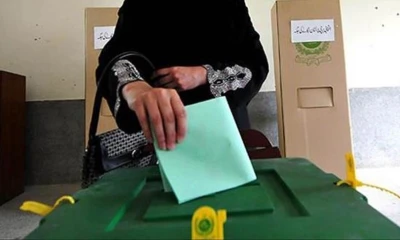
 Pakistan 13 hours ago
Pakistan 13 hours agoPolling for NA-148 Multan-1 by-election today
-
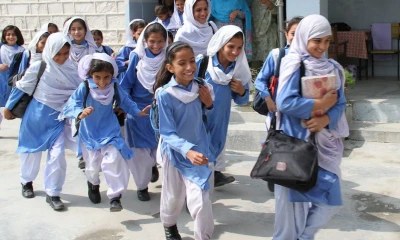
 Pakistan 2 days ago
Pakistan 2 days agoSummer holidays announced in Punjab
-

 World 1 day ago
World 1 day agoRiots among students in Kyrgyzstan
-
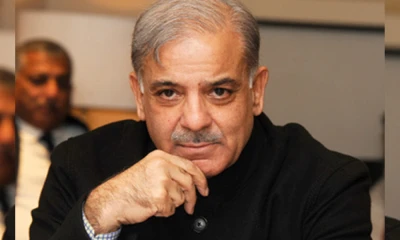
 Pakistan 1 day ago
Pakistan 1 day agoShehbaz nominated acting president of PML-N
-

 Business 2 days ago
Business 2 days agoPakistan's forex reserves surge $15mn
-
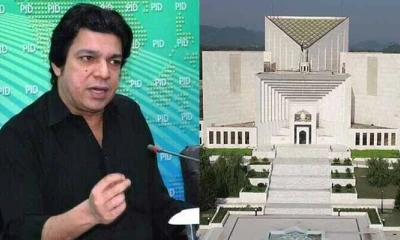
 Pakistan 2 days ago
Pakistan 2 days agoSuo Motu case: CJP seeks response from Vawda, Mustafa
-
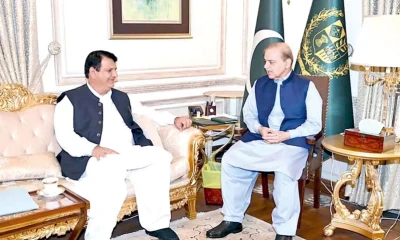
 Pakistan 18 hours ago
Pakistan 18 hours agoPM directs Amir Muqam to leave for Kyrgyzstan immediately
-

 Regional 2 days ago
Regional 2 days agoSun shines in Lahore, no chance of rain


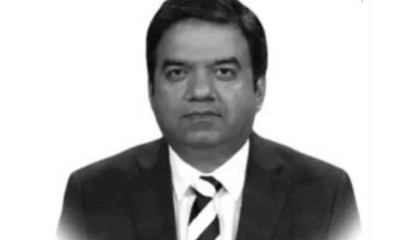

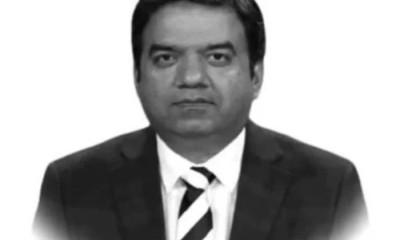



:format(webp)/cdn.vox-cdn.com/uploads/chorus_asset/file/25452642/Screenshot_2024_05_17_at_10.22.36_AM.png)






